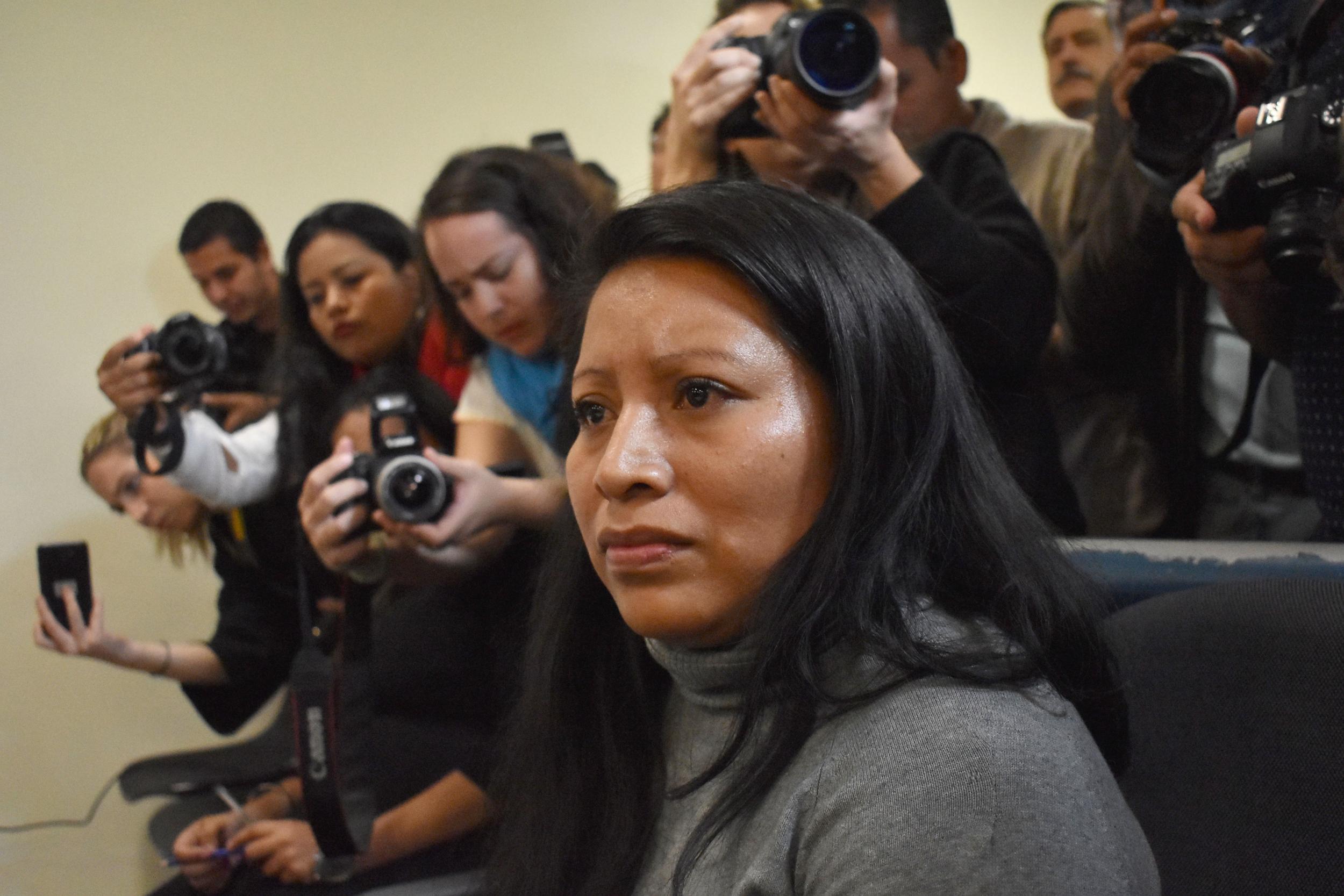Teodora Vasquez: El Salvador court refuses to overturn 30-year sentence for woman in stillbirth case
Judges deny appeal of woman in jail for nearly a decade over abortion-related charges

Your support helps us to tell the story
From reproductive rights to climate change to Big Tech, The Independent is on the ground when the story is developing. Whether it's investigating the financials of Elon Musk's pro-Trump PAC or producing our latest documentary, 'The A Word', which shines a light on the American women fighting for reproductive rights, we know how important it is to parse out the facts from the messaging.
At such a critical moment in US history, we need reporters on the ground. Your donation allows us to keep sending journalists to speak to both sides of the story.
The Independent is trusted by Americans across the entire political spectrum. And unlike many other quality news outlets, we choose not to lock Americans out of our reporting and analysis with paywalls. We believe quality journalism should be available to everyone, paid for by those who can afford it.
Your support makes all the difference.A court in El Salvador has upheld the 30-year sentence of a woman jailed for what she says was a stillbirth.
Teodora Vasquez, 37, has been in prison for nearly ten years.
She says she called an ambulance and collapsed after suffering severe abdominal pain while heavily pregnant in 2007. She awoke to find that her baby had died and police officers were accusing her of inducing an abortion.
Abortion is illegal in all cases in El Salvador and carries a maximum sentence of eight years. However, women suspected of committing abortions are often charged with aggravated murder instead, as Ms Vasquez was in 2008.
Her lawyer, Victor Hugo Mata had said there were “glaring errors” in her first trial.
The appeal was heard by the same judges who sentenced Ms Mata ten years ago, prompting criticism from human rights groups.
The court said that the evidence against Ms Vasquez “had not been categorically disproven”.
On hearing the new verdict Mr Mata said, “The scientific evidence has not been fully analyzed. The scientific evidence does not show what the court has concluded.”
Last year Amnesty International presented 250,000 signatures to the Salvadoran government demanding Ms Vasquez be freed.
Responding to the decision, Erika Guevara-Rosas, Amnesty’s Americas Director, said: “Teodora’s tragic story is a sad illustration of everything that is wrong with the justice system in El Salvador, where human rights seem to be a foreign concept.
“Instead of punishing Teodora for being a woman, authorities in El Salvador must urgently take a hard look at their outrageous anti-abortion law and take immediate steps to repeal it.”
The charity’s El Salvador representative, Ina Strøm, who was at the trial, said: “The room was in tears when we heard the verdict. The family is devastated. This is such a tragedy and the injustice is beyond words.
“As the lawyer pointed out, if someone is intending to kill their baby, they would not call 911 as Teodora did.”
El Salvador has had one of the world’s strictest abortion laws since 1997. Although abortion is completely banned in six other countries — Nicaragua, Honduras, Haiti, Suriname, Andorra and Malta — El Salvador is particularly strict in its enforcement of the law.
Doctors are legally required to report women they believe may be planning an abortion or risk long prison sentences themselves, leading to what activists say is the criminalisation of miscarriages and stillbirths.
According to the Salvadoran charity Citizens Group for the Decriminalisation of Abortion, 27 women are currently serving sentences of between 6 and 35 years for aggravated homicide in connection with abortions.
Last year the government, lead by President Sanchez Ceren, proposed a reform to allow abortion in cases of rape and human trafficking or where the woman’s life is at risk, but it has not passed congress.
Chile introduced a similar reform to its abortion law in August.
Join our commenting forum
Join thought-provoking conversations, follow other Independent readers and see their replies
Comments